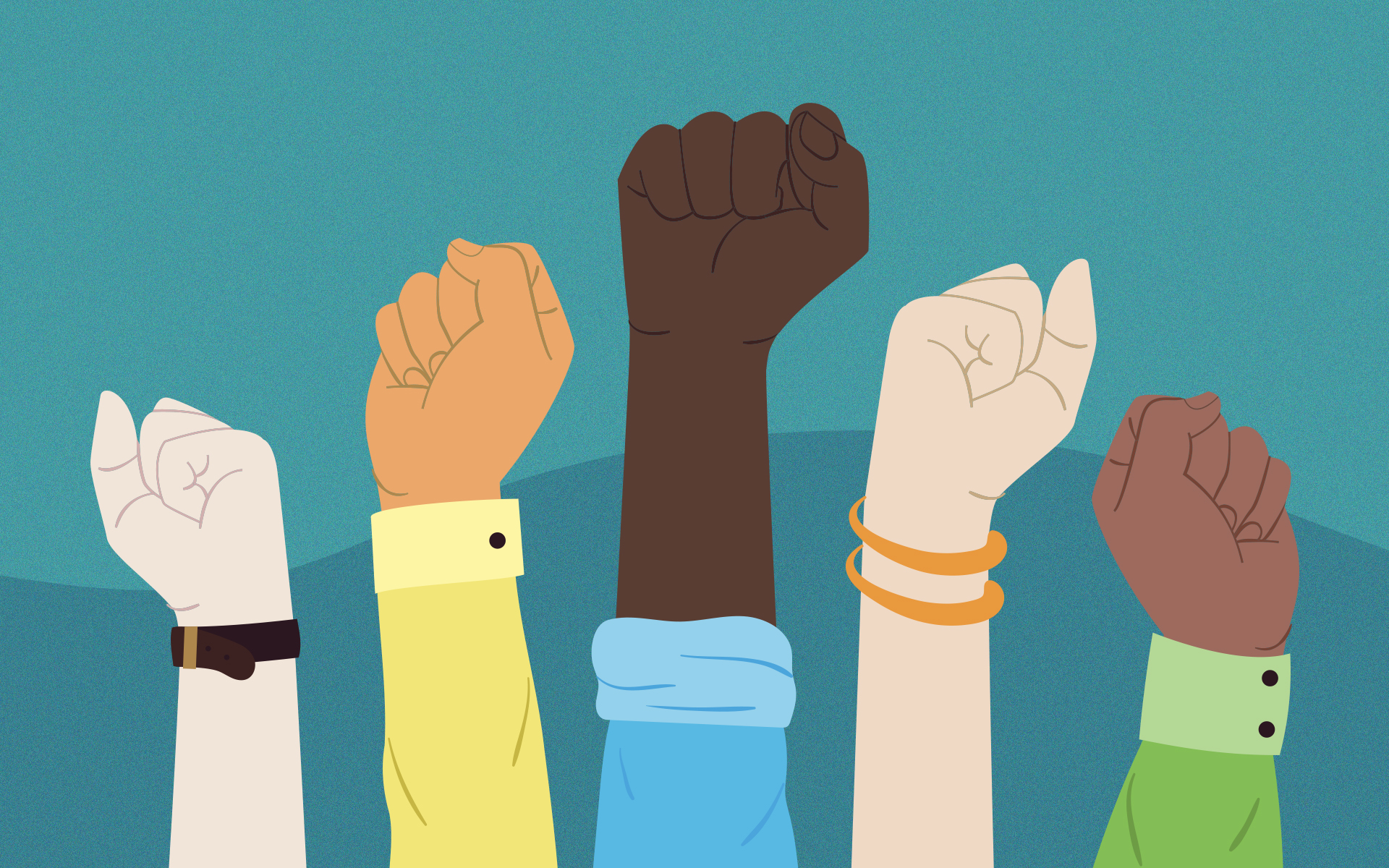Are you the type of person who’s too busy driving from place to place to stop and fill that gas tank with the beaming low fuel light? Too busy rushing about to take a moment? Too guilty to take a pause even though it’s clear you need one? Perhaps, you don’t feel empowered enough to demand a break? Or, maybe you’re just so caught up in your day it’s easier to ignore all the signs telling you it’s time to pause, breathe, and assess the situation.
Being able to identify the need for a “personal moment” is critical. However, the reality is most of us are already pretty good at this part of the equation. Where we tend to fall short is acting on our own recognition. It’s not enough just to notice that low fuel light inside your head. You have to do what it’s telling you – pull over, put it in park, and refuel. This isn’t always easy and, in fact, often requires a good bit of personal courage.
Taking a moment means intentionally shifting behavior, and, in today’s “busy or bust” world this can have consequences. For instance, we might resist due to fear of judgment (others may look at us as slackers). Or, we might worry that pausing will cause us to fall further behind in our already overwhelming workload. We might even fool ourselves into believing we’ll break later, knowing full well that later will be just as hectic as the present. The point is, we cling to excuses because it’s easier than owning up to our own needs. Self-sacrifice has become more acceptable than self-care.
When we get quiet, things that are important to us get really loud.
The good news is, when we finally find the self-awareness to take that moment something remarkable happens. When we get quiet, things that are important to us get really loud. Our capacity for creativity is enhanced. Our perspectives on life become clearer. We realize how important self-care is, and grasp the major role it plays in our ability to feel strong, maintain focus, stay engaged, push for change, and live our best lives.
In the past few weeks, I’ve laid out a pretty strong case as to why mental health breaks are vital to emotional and mental wellbeing. While I often imagine that you’re all nodding in agreement, let’s be honest with each other: understanding the logic and rationale of the why and actually doing something about it are two different things.
Do You Have the Courage To Be Vulnerable?
Admitting that you need help or a moment to yourself requires courage in its starkest form: vulnerability. For a lot of us, this is a terrifying realization. After all, if we embrace our vulnerability, we run the risk of appearing needy or insufficient. We expose ourselves to rejection. We admit to the world that we’re not indestructible forces. Vulnerability means baring your truth to another and removing that “I’ve Got It All Together” mask we often present to the world. This takes guts.
I have read many articles and countless chapters in self-help books that advocate being “courageous” as if it’s an easy thing to do, as if overcoming your fears is a simple task. What these pieces fail to point out, however, is that the only way to overcome our fears is to first call them out.
Three Self-Care Tools for Claiming Your Healing Time
1) The Confession Statement: Name it to Tame It
One way to “name it to tame it” is what I like to call “the confession statement.” In a nutshell, it allows you to acknowledge your fears internally, while openly admitting your needs to a confidant. A confession statement might go something like this:
“I’m a little of nervous to admit this and I hope you will accept it, but I need to take a step back. I need a quiet moment to find clarity of mind and spirit.”
By finding the strength to share your feelings honestly, not only will you ease your own nervousness, you’ll also create an intimate space in which the other person is free to receive your request, accept it with an open mind, and act upon it with a softened heart. This “confession” disarms both of you, leading to a genuine spirit of understanding.
You, the confessor, finds a welcoming and non-judgmental ear. Your confidant knows that he or she is being trusted with your vulnerability, freeing you of burdens that inhibit your self-care. It’s a pretty good feeling all around.
2) The Pre-Ask: Asking For Help or Space Before You Actually Need It
Most people refuse to ask for help or acknowledge that they need a little space until their anxiety is already at a boing point. Let’s go back to the “low fuel” light analogy. When the light comes on, you know you’ve only got about 30 miles before running out of gas. But, hey, that’s still 30 miles! No need to start looking for a gas station immediately. Why worry about what’s going to happen down the road, right?
In the case of self-care, it’s the accumulation of stressors that haven’t been addressed that flick on that light. These stressors get more and more critical as you head down life’s road, piling up and piling on until you find yourself with an empty tank – or burnout.
In other words, don’t wait too long. Let those you trust know when you feel like you’re approaching the point of needing help or a step back. Give them time to ready themselves so that they can be more effective when you do reach out.
Teeing up a pre-ask sounds something like this: “I’ve got three projects on my plate and I am on track to complete them on time, but I may need to ask for your help if I stumble along the way. Are you open to that?” Or, it might go something like, “I’m afraid to admit this to you, but I’m feeling very foggy and may be incapable of coming to the meeting tomorrow. Is it okay if I let you know by tomorrow morning?”
Think of a pre-ask as the setting of an intention. An intention is an action that hasn’t been enacted yet. A pre-ask invites someone to accept your request for help/space/time before you actually ask for it.
3) The Kindness Factor: Remember That People Love To Help
Think about the last time you helped someone, or were willing to recognize their need for space. Chances are you came out of the experience feeling a powerful sense of gratification, goodwill and pride. That’s because we humans actually love helping each other. We’re hard-wired for empathy. We like doing good things for one another, which is why acts of kindness large and small happen all around the world every single day.
It stands to reason, therefore, that there are plenty of people in your life who at one time or another would have been happy to help you had they been asked. They would have gladly watched your kids; assisted with the project you were stuck on, or just given you the space you needed to take a moment of reflection. The problem was never their willingness to help you. The problem was and is your fear and inability to reach out with the ask.
Friends and family may believe we have everything buttoned up because that’s the image we project to the world. They don’t offer help because they don’t think we need it. Or, if they do recognize the need, they don’t want to offend us by pointing it out. After all, no one likes being pitied, right? Boy, do I hate the word “pity”.
Empathy is not pity. Empathy is connecting with another person’s pain in a deeply meaningful way. It’s not feeling sorry for them. It’s developing an understanding of their suffering. It’s putting yourself in their shoes and accepting their struggles. Empathy is also a two-way street. You can’t be empathetic without acknowledging the suffering of others. You also can’t open yourself to empathy without acknowledging your own struggles, anxieties, and needs.
People who want to help are out there. But you have to open the door and invite them inside.
How To Find Mindful Moments In Your Day
You may not always be in a position to ask for help or share your need for space with another. Or, maybe you’re just not ready to put yourself out there quite yet. Here are some simple tips to structuring mindful pauses in your day that can help you regroup and catch your breath. They’re quick fixes but they work. Plus, over time, creating your own mindful moments will help you become more comfortable with your vulnerability. Who knows? Soon you might be more open to asking those around you for help.
- Use the Breath As Your Anchor: Wherever you are in your day, take a moment to stop, place one hand on your stomach and on your chest, slowly inhaling in through your nose, holding your breath for a few counts, and then slowly exhaling out through the mouth. Do this for a few cycles. Consciously connecting with your breath periodically will help you slow down, relax, and see things more clearly.
- Create Technology-Free Spaces: Figure out a specific timeframe or place where you cannot engage with your computer or mobile devices – over dinner, in the bathroom, the bedroom, while lying in bed – and adhere to this rule.
- Take It To Nature. Make a commitment to get outside every single day. Go for a walk around the block. Sit beside the rolling ocean or a serene lake. Enjoy lunch on a park bench. Go somewhere you can commune with Mother Nature. She’s a great listener.
- Listen to A Favorite Song. Getting lost in the rhythms and messages of music is a great way to exist within yourself for 2.5 minutes. Slip on your headphones, let the sound wash over you, and shut everything else out.
Step Into Your Own Power
Asking for help and accepting it is empowering. When we’re able to admit our anxieties, stresses, insecurities, and personal boundaries we open up a dialogue that is essential to self-care. As Roger Ellerton eloquently put it, “when we ask for what we want or demand what we need, we give other people the opportunity to say, ‘yes’ and we stop saying, ‘no’ for them.”







